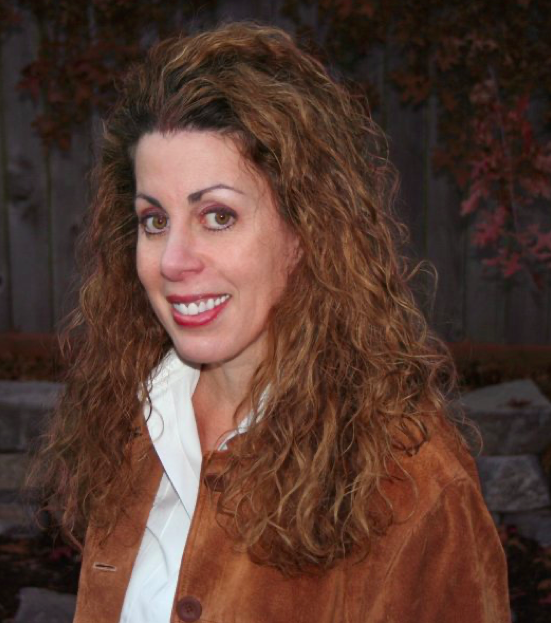'She really was magical': Community honors Cara DiMarco's role in helping women, families
Cara DiMarco had many roles in the Lane County community — therapist, councilor, teacher, book author, curriculum developer, friend and mentor, to name a few.
Colleagues at Lane Community College and students who participated in the college's Women in Transition program have grappled with the hole she left behind since her death in August. A public celebration of her life will be hosted at the Campbell Community Center on Saturday. She was 64.
"She really was magical in terms of her ability and skills to help move students toward their goals," Marge Barnhart, a colleague and friend, said. "Cara was brilliant and intuitive in her ability to really see her students and inspire individuals to reach for the best within themselves."

Grew up in Springfield, UO graduate
DiMarco was born and raised in Springfield, and attended the University of Oregon. She earned a master's degree in journalism in 1986, a master's in counseling psychology in 1988, and a doctorate in counseling psychology in 1992. She became a licensed psychologist in Oregon and had a private practice in Eugene for more than 30 years.
DiMarco was the heart of the Women in Transition, or WIT, program, said Barnhart, an adviser to the program. The nationally recognized college program helped empower more than 7,000 women to reach their personal goals and economic self-sufficiency.
For local stories that matter, subscribe today.
DiMarco was the lead faculty and curriculum architect for the WIT program for nearly 30 years. She developed a six-course program and wrote three textbooks for the classes.
Carla Ayres met DiMarco in 2004, in the middle of big transitions of her life that led to her becoming a student for the first time in many years.
"I had a lot of my own challenges going through divorce … coming from a family pretty riddled with addiction, and so I didn't really know how to be successful," Ayres, a WIT alumna, said. "Cara gave me the courage to be who I am supposed to be — I didn't have that before going through that program and meeting her."
Ayres learned from DiMarco's assuredness, she said. When she pictures DiMarco now, she sees her in front of a classroom wearing her distinct "got it handled" look.
"She was very genuine. She was real. She was direct," Ayres said. "And she didn't take no bullshit from anyone."
After going through the program, Ayres went on to get a degree from the University of Oregon. DiMarco stayed in contact and continued to be an encouraging voice as she was for many.
Helping women change their lives
In the 1980s, the federal government was giving funds to programs that help women. One of those grants was for displaced homemakers and single parents. In 1984, LCC's Women's Program applied for that grant and the Women in Transition program was born.
DiMarco was a counseling intern at LCC in 1988 when she had the opportunity to volunteer with the then new "Transitions to Success" program, which was later renamed.
After finishing her doctorate at UO, DiMarco became interested in helping the program, said Kate Barry, who directed LCC's Women's Program from 1984 to 2008.
Quickly, DiMarco became faculty and became the primary person who established the curriculum for the program, Barry said.
She developed it into one of the first learning communities at LLC, allowing students to spend the term thinking about their lives and their life transitions and making a plan for the future, Barry said.
"The transitions program was more than just, 'Oh, here's a set of classes to help women get into school,' " Barry said. "The women who went through that program described it as life-changing and transformational. And Cara was the key piece of that."
DiMarco's work with the program was recognized by the college and statewide. She won the Lane Faculty recognition award twice, the Psychologist Educator of the Year award in 2010 and a Wayne Morse Law Center grant to study the impact of developmental trauma in higher education in 2016. She later presented her grant findings to educators from around the state at the 2017 Oregon Community College Association Conference. She retired in 2009.
Thousands of women went through the program, but quantifying DiMarco's impact goes beyond the students, Barry said.
"It doesn't just impact them (the students), it impacts their whole family. They create a different future for their children and for their families as well as themselves," Barry said. "That's why she was important."
A group of her former colleagues are organizing a scholarship in her honor; donations can be made on LCC's website. Donors can designate DiMarco's scholarship in the drop down menu.
A celebration of life will be at 2 p.m. Saturday at Campbell Community Center, 155 High St. Masks will be required.
Contact reporter Tatiana Parafiniuk-Talesnick at Tatiana@registerguard.com or 541-521-7512, and follow her on Twitter @TatianaSophiaPT. Want more stories like this? Subscribe to get unlimited access and support local journalism.
This article originally appeared on Register-Guard: Community remembers Cara DiMarco, who shaped LCC's Women in Transition
